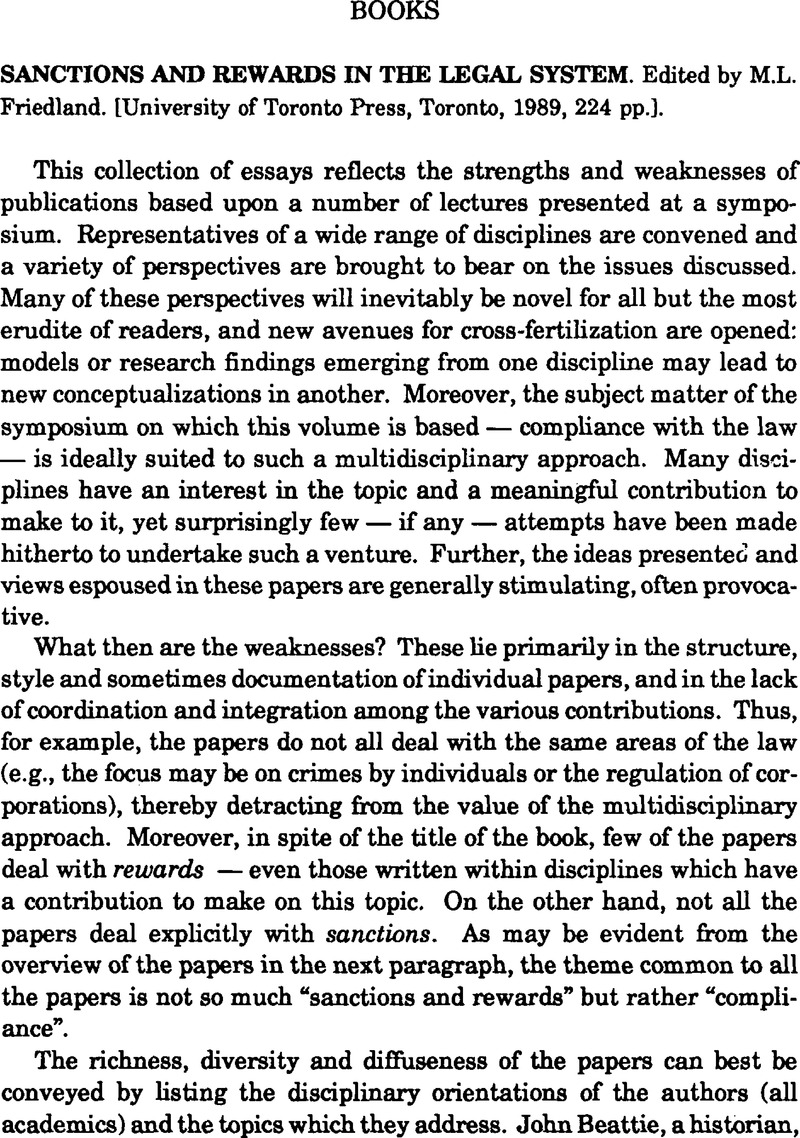No CrossRef data available.
Published online by Cambridge University Press: 16 February 2016

1 It is common practice for an offender to be required to enter into a recognisance to refrain from further criminal conduct. If he is in breach of his undertaking, he is required to pay the sum specified. This is clearly a suspended sanction. However, the offender (or in the case of Palestinian stone throwers, his parents) may be required to deposit the money which becomes returnable in the event of continued good behaviour for the duration of the period specified. While in substance the two cases are almost indistinguishable, the return of the money in the second case appears to take the form of a reward.